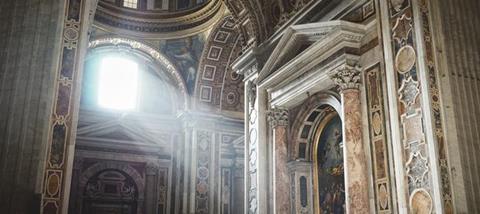
The perpetual problem of Christianity; why can’t we all just be friends?
As a late teen I didn't understand why all our different denominations refused to join together as one! So a friend and I decided to lead by example and visit every church in the local area. From worship bands to church choirs, Pentecostal spirituals to a small church singing songs from memory; each expression of worship had its own undeniable unique element of beauty.
A few years have passed since then and my teenage quest to unite all denominations hasn’t come to fruition(!) but my intrigue about different worship styles never left.
Imagine for a moment that you are at a large evangelical Christian conference and there's a worship band playing at the front. Ask yourself this: Would you encounter beauty through artistic elements? The answer here is probably going to be 'no', and a natural response might be to ask why artistic beauty even matters in our worship. After all, the worship band are leading people in engaging with God. Surely this is all that matters?
Here's where the 18-year-old me comes in. In our communal worship, we are seeking to engage with God as deeply as we can. So why would we want to look only at our genre of worship music? Why don’t we look to other parts of Christianity and glean wisdom from them? Throughout our faith's long history there has been a strong thread of artistic beauty interwoven with the church’s worship.
Theological aesthetic (an academic sounding term for the theology behind beauty) tells us that we are innately creative beings. Genesis 1:27 teaches we are made in the image of God. But at this point in biblical history - we only know one thing about God - that he's the ultimate creator! Therefore, us being made in the image of God must mean we, like God, have innate creativity.
One of the most powerful ways to engage with the creator God is through artistic beauty. This thinking has been core to the church’s worship historically.
Artistic beauty is a powerful way to engage with God that has been used throughout Christian history
Before we go on I must warn you, I am both a composer and a theologian and I can get very geeky about churches. When I was in Italy recently I went into more churches than I could possibly count, including the Vatican. Much of the grandeur is considered self-indulgent and contradictory to Jesus’ teaching about the poor. But I believe this perspective misses the point. These gold mosaic ceilings, the expansive artwork, and the grand architecture is the church’s worship to God through artistic beauty.
Think of the Orthodox church with its use of icons. Pieces of art are literally venerated as part of their worship, and even in the Protestant collective, from which puritanism came, we have the magnificence of London’s St Paul’s Cathedral, which is as architecturally grand as buildings can be!
Artistic beauty is a powerful way to engage with God that has been used throughout Christian history, and the way that we as a Church can learn from this is by using beauty in our sung worship. Beauty through music has been a vital part of the history of our faith all the way back to the Judaic temple. Not because people like beautiful music (this reasoning would be far too simplistic) but because when we engage in beauty we lose ourselves and engage with the creator God.
Very few people who I have spoken to in church circles think that ‘worship music’ is particularly good these days, with its simple chord patterns, repetitive melodies and shallow lyrics. But I see a lot in it that is good. And if it looked towards choral art music, it could be even better and perhaps provide the depth that many Christians are longing for.
I’m still that ambitious 18-year-old who wants to back up my words with actions. So as part of my PhD I’m putting on an event called ‘Beauty in Worship’ later this month at the London School of Theology. It will be a typical contemporary service with a worship band, but I will also use a chamber choir to bring depth to our worship. You'd be most welcome to join us.
Calum Carswell is a composer and PhD candidate at the University of Aberdeen
Click here for a free sample copy of Premier Christianity magazine




























